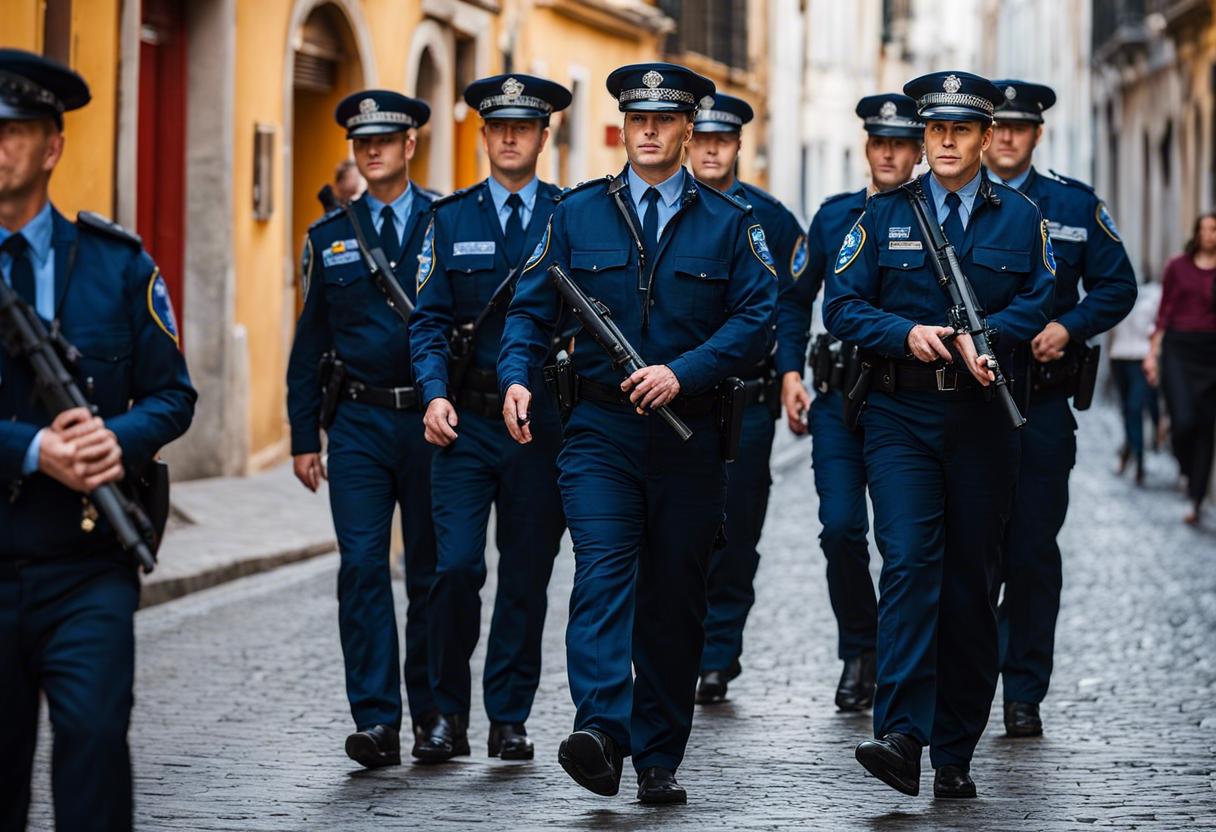The hiring of Garda officers is truly accelerating, as declared by the Minister for Justice, Helen McEntee. Despite a recent reduction in the total police force’s capacity over the past four years, the recruitment of new Garda officers will surpass that of 2023 in the current year. During a pass-out ceremony at Garda College in Templemore, Co Tipperary, she revealed a class of 166 enrolling officers. Despite missing the intended 200, she highlighted that it was the largest batch during her ministership.
McEntee discussed the goal they had set last year for enlisting between 800 and 1,000 new recruits, explaining that they hadn’t quite made it. She also noted similar shortfalls in 2022 and shared her concern about decreasing numbers. However, she remained optimistic due to the 5,000 applicants aiming to join the Garda in the previous year and the further increase to 6,300 this year, indicating a continuous influx. She commended the numbers for a soon-to-begin class in Templemore.
Additionally, McEntee disclosed a change in policy where the maximum age for applicants has been raised from 35 to 50 years. The retirement age for existing Garda members will increase to 62. An ample augmentation was made to the training allowance for new members in a bid to continue to draw in a high number of applications.
Despite these efforts, the Garda Representative Association (GRA) and Association of Garda Sergeants and Inspectors (AGSI), representing over 10,000 Garda officers, expressed strong criticism regarding the Garda recruitment strategy. Both bodies stated that recruitment targets were consecutively unmet. They added that more individuals are leaving the force due to a diverse range of problems, including unsatisfactory training, reduced pensions, and doubts regarding Garda supervision.
During the same event at Templemore, Garda Commissioner Drew Harris revealed that 10 of the passing-out recruits would join Operation Saul, combating antisocial activities on public transport. This move will facilitate the formation of a permanent team in north Dublin central, undertaking city-wide public transport patrol. Furthermore, he allocated 101 young officers to the Dublin area, 39 to Eastern stations, 14 to the South, and 12 to the North West.
During his speech at the graduation ceremony, Mr Harris shared with the latest recruits that the Garda was formed on the principles of “relentless efforts, devotion and adherence”. He asserted that An Garda Síochána is regarded among the most esteemed police services globally, with a significant number of the public showing confidence in the security they provide. Moreover, the majority of citizens reported minimal apprehension over local crime issues.
Subsequent to the graduation ceremony, the Garda’s membership levels have again exceeded 14,000, now standing at 14,091. This includes 3,494 non-commissioned employees and 346 reserve Garda members. An additional 277 Garda trainees are studying in college, with an impressive 553 new gardaí have completed their training since the post-pandemic reintroduction of Garda recruitment.

